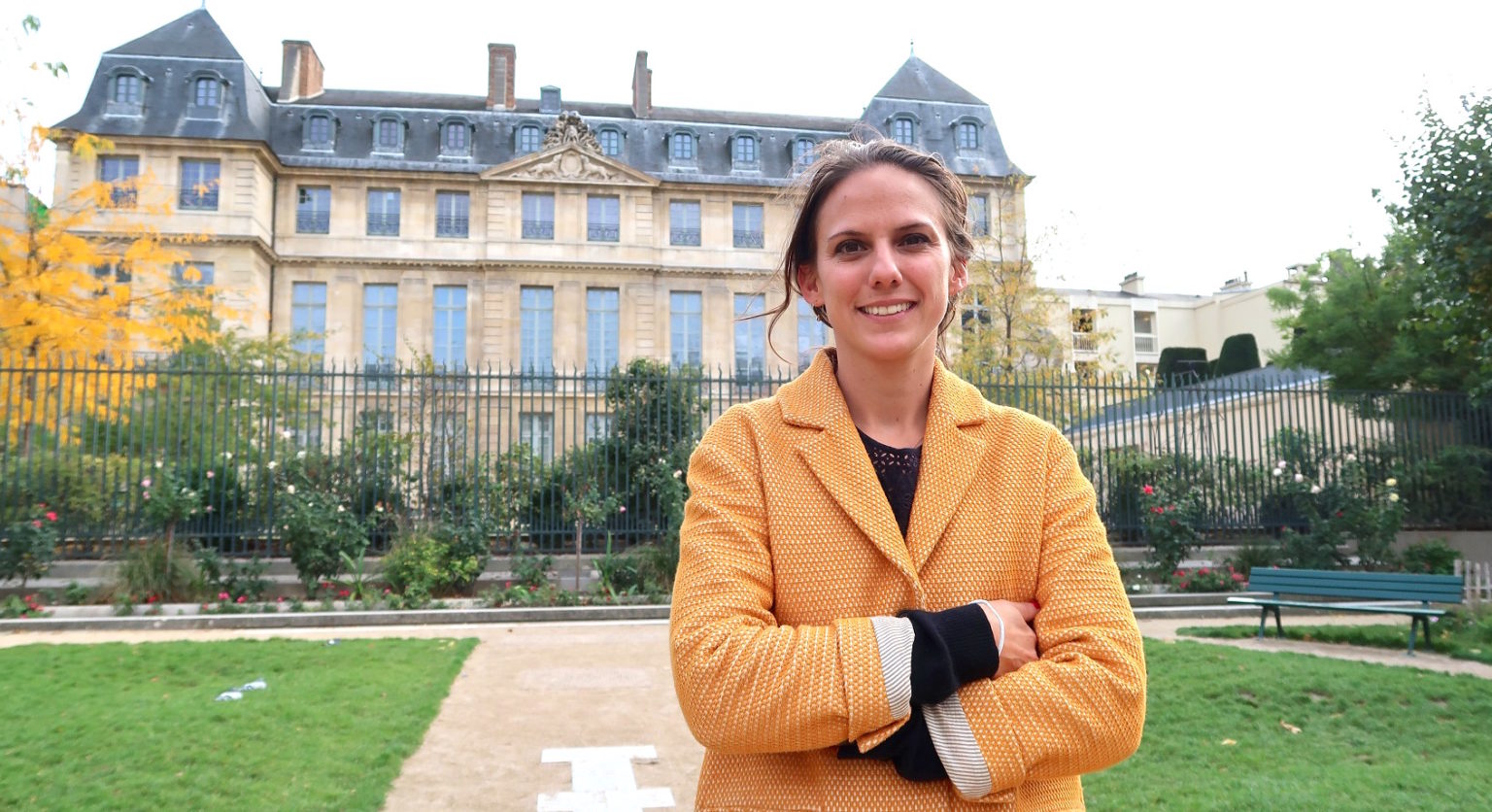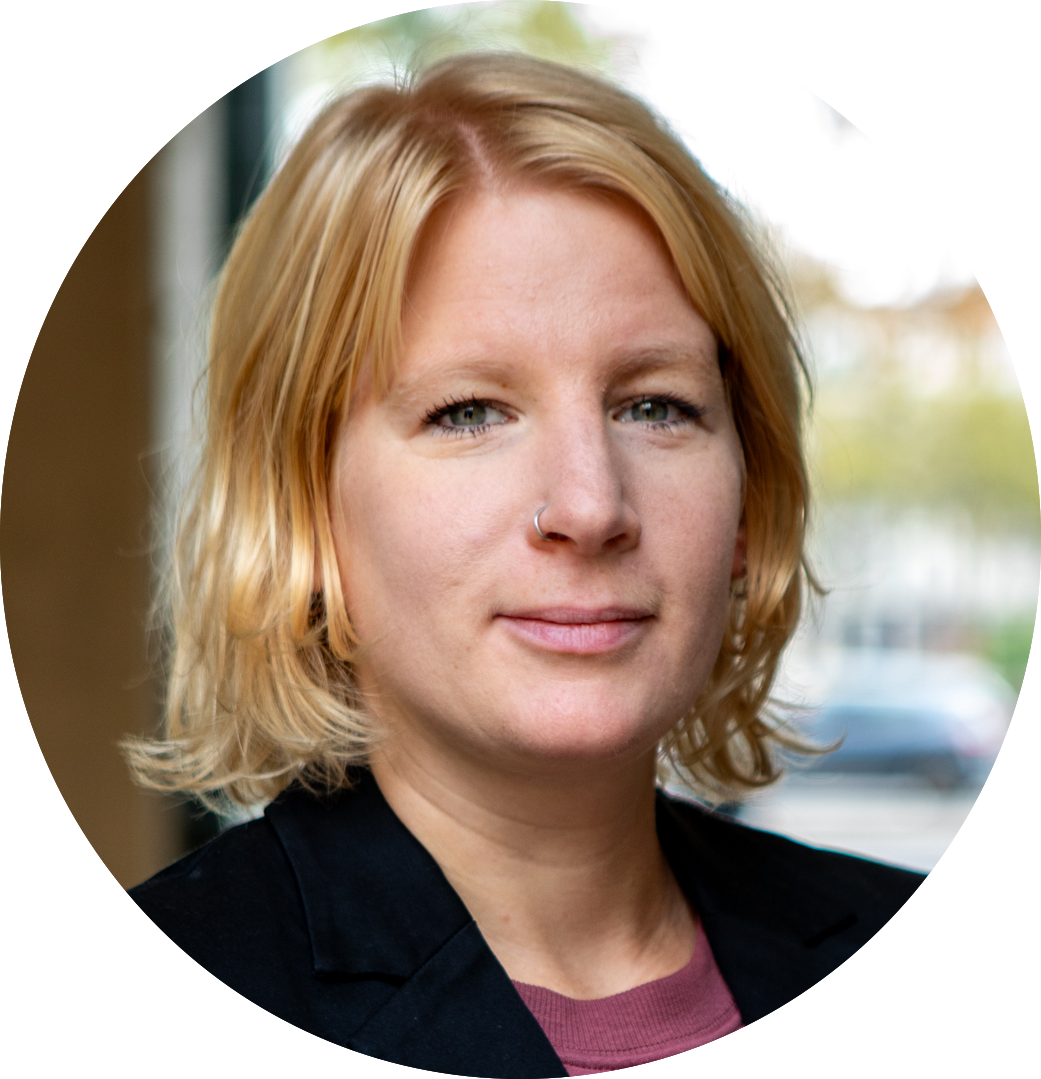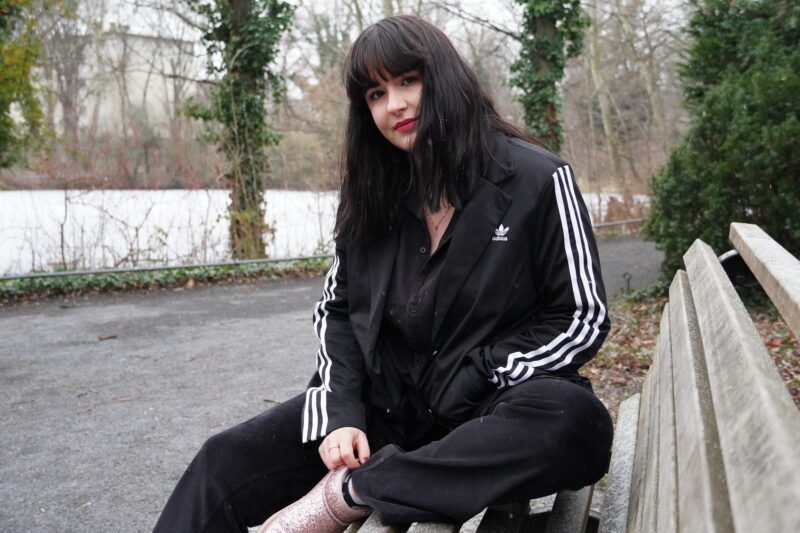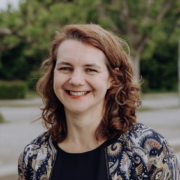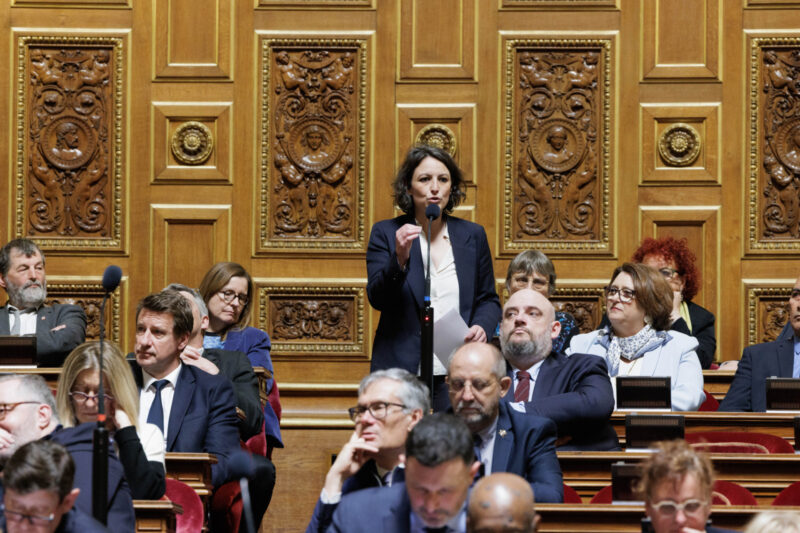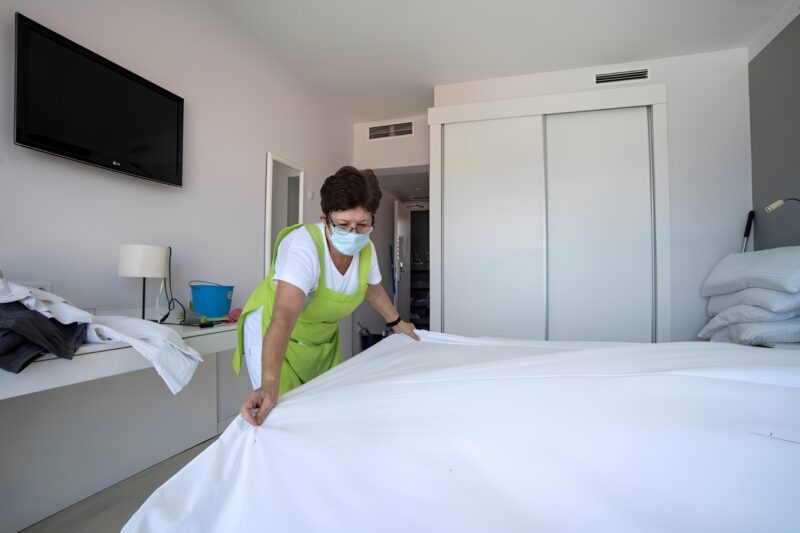It is true that most French women have no problems combining children and career. Most of them have probably never heard the term “raven mum” used in Germany to describe a working mum as abandoning her kids. But there are also problems such as domestic, sometimes fatal violence against women, which drives thousands of people onto the streets. Two Parisian women talk about their experiences.
By Carolin Küter, Paris
More than 120 women are murdered by their partners or ex-partners in France every year. This means that at least every third day, a man stabs, shoots or strangles his wife because there is an argument or she wants to separate, according to statistics from the Ministry of the Interior. A problem that Sandrine Bouchait was not aware of – until the morning of September 23, 2017.
The then 43-year-old received a message from the brother of her sister’s partner. Her sister lived with her boyfriend and their daughter in a suburb south-west of Paris, just a few kilometres from Bouchait. The brother reported that there had been a fire in the family home. All three were being treated in hospital. He did not say any more.

She immediately contacted the police and travelled to the police station together with her mother. The old woman had to sit in a waiting room and Bouchait herself was questioned for half an hour. Then she asked: “I don’t understand. Was my sister asleep when the fire broke out? Why didn’t she escape?” She was then told that her sister was first beaten by her partner, then doused with petrol and set alight. Her daughter, who was seven at the time, witnessed the whole thing.
“It was only then that I realised,” says Bouchait. She rushed to her mother and found her in tears. Neighbours who had been summoned as witnesses had already reported what had happened. The police showed no compassion in dealing with her, Bouchait recalls: “They said goodbye to us without giving us any help. We were completely on our own.” Her sister died from her burns the next day.
“France is waking up“
Today, the 45-year-old reports the events with a firm voice. She has hired a lawyer and obtained temporary custody rights for her niece. She has organised a place in therapy for her, herself and her ten-year-old son. In the first year after her sister’s death, she functioned “like a robot”. At some point, she collapsed.
Bouchait looks after children as a childminder, but she has been on sick leave since last summer. However, even without a job, she can’t rest. Together with other relatives of victims of domestic violence, she has founded a support organisation for affected families, the “Union Nationale des Familles du Féminicide”, or UNFF for short. As chairwoman, she gives one interview after another and the topic is currently very much in the spotlight. “France is waking up a bit,” says Bouchait.
Two years after the death of her sister, almost every fatality is reported in the media and the tone of reporting has also changed. Instead of talking about “family tragedies” as was the case a few years ago, the word “femicide” – according to the World Health Organisation, the murder of a woman because she is a woman – is now commonplace. With a rate of 0.18 femicides per 100,000 inhabitants, France is in the European midfield according to Eurostat figures*.
The topic is on the minds of many: In November 2018, tens of thousands demonstrated against sexual and sexist violence. A second march with tens of thousands of participants took place at the end of November. The government convened a round table bringing together politicians, police, relatives and aid organisations to discuss how violence against women can be better combated. Immediate measures were also announced: 1,000 additional places are to be created in emergency shelters for women. In addition, police procedures, investigations and the treatment of victims and relatives are to be reviewed.
Disappointment with government measures
However, the measures hit the wrong people, criticises Bouchait – it is not the women who should have to flee to emergency shelters, but the men who should be banned from the shared home. And they took too long: by the time the police work had been evaluated, more women would have died. Relatives and victims already know what is going wrong.
Her aid organisation UNFF therefore wants to take matters into its own hands and be a point of contact for relatives, set up a network of psychologists and lawyers and work to ensure that police officers are better trained in dealing with relatives and victims. “I can no longer do anything for my sister,” says Bouchait, “but I can try to reduce the number of murders in the long term.” France still has a lot of work to do in the fight against femicide.
Overall, according to the EU Gender Equality Index, France ranks at the top in terms of the emancipation of women and men. Only Sweden and Denmark fare better. In terms of the distribution of positions of power, it is even in second place – nowhere else in Europe are there more powerful women in business and on company boards. At the same time, with 1.9 children per woman, France has been the European leader in the birth rate for years.

Reconciling family and career therefore seems to work relatively well. Claire Garnier shares this opinion. The 36-year-old is sitting in a restaurant in the casually chic 3rd arrondissement of Paris. Her employer, the Picasso Museum, one of the city’s most important art centres, is directly opposite. The mother of two is one of two women on the four-member board of directors. Only the president and general director are above her. “Have I ever hesitated to have children because it might affect my career? No,” she says.
Garnier first studied at the Paris “Institute for Political Studies”, one of the country’s elite “Grandes Écoles”, and then art history at the Sorbonne University in Paris. “My friends often remind me that I said I wanted to be president of the Centre Pompidou,” she says. She worked at the famous Parisian museum during and after her studies. In 2014, she followed her then boss to the Picasso Museum, heavily pregnant with her first daughter. About three months after the birth, she started working again and was promoted to deputy director.
Her second daughter was born in November 2017, and a few months later Garnier returned to her job – full-time, just like the first time. Placing a child in full-time childcare a few weeks after birth is normal in France and financially necessary for many. The reason: women are only entitled to six weeks paid maternity leave before the birth and ten weeks afterwards. Fathers can take eleven days of special leave. After that, both can take a maximum of three years parental leave together, but without continued pay.
Garnier’s partner also works 100 per cent. He works as a manager in a small company where it is difficult to work less, says Garnier. She has never considered going part-time, even though she admits that in 2015, the year her first daughter was born and she started a new job, she constantly felt “like she was in a spin cycle”. After the birth of her second daughter, she was on sick leave for several months due to stress-related pain. Nevertheless, she never switches off and doesn’t allow herself to take half a day off: “There’s just always too much to do.”

Childminders: indispensable for childcare
She usually sees her daughters for one hour a day. They are looked after from half past eight until half past six in the evening. The four-year-old goes to pre-school, where she can also stay after school. The two-year-old is looked after by a childminder, known as a “nounou” in France. Most children who are not cared for by their parents in France are looked after by a childminder, the second most common being a crèche. Although more French women would like to place their children in such centres, according to official estimates there is a shortage of more than 200,000 places nationwide.
Garnier also searched in vain for a crèche for her older daughter; she then found the “Nounou” and is now very happy with it. She is very flexible with this model – “Nounou is the pillar of our entire system.” The family pays the childminder, who looks after a total of three children, around 800 Euro a month. Her social security contributions are paid by the state. Afterwards, Garnier and her partner are reimbursed the minimum rate of 175 Euro, while families in need receive more.
She does not have a guilty conscience because she hardly sees her children during the week. Claire Garnier says: “I know that there are women who don’t like the fact that there is someone who spends much more time with their children than they do. But I think it’s great that my children also have a strong bond with other adults.” Nobody disputes her role as a mother.

